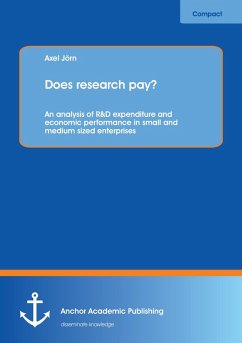In order to develop or protect competitive advantages, companies, besides other initiatives, increasingly invest more and more in research and development (R&D) to foster innovation and dynamic capabilities. Consequently, discussions about the effectiveness and benefit of R&D expenditure have become popular in the recent years.
In the first part of this book the theoretical basis for innovation management, calculation of benefit, and evaluation methods of R&D initiatives in companies are given. The second part presents a quantitative analysis of the efficacy of R&D expenditure and economic performance of SME based on a data set produced from the Statistisches Bundesamt Germany and by using MS Excel the programming language "R". Finally, this research provides a summary, an outlook, and a recommendation for further research.
In the first part of this book the theoretical basis for innovation management, calculation of benefit, and evaluation methods of R&D initiatives in companies are given. The second part presents a quantitative analysis of the efficacy of R&D expenditure and economic performance of SME based on a data set produced from the Statistisches Bundesamt Germany and by using MS Excel the programming language "R". Finally, this research provides a summary, an outlook, and a recommendation for further research.








